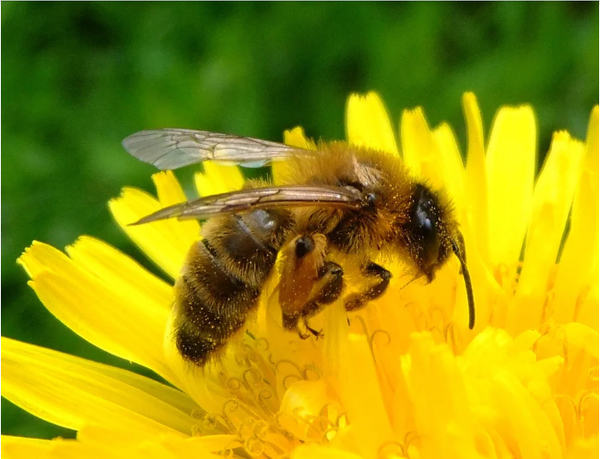Bees can be a little scary. I remember my first bee sting when I was about 5-years-old. It was not my favorite experience, but I survived. Some people have allergies to bees which increases the scare-factor of the little creatures. While bees can be slightly intimidating, they are incredibly important parts of our ecosystem, and their livelihood is in jeopardy.
In order to make honey, there needs to be a variety of flowers to satisfy their nutritional needs. Due to the overuse of pesticides in the United States in recent years, necessary flowers are becoming poisoned for bees and the honey bee population is dying off. Not only are bees in danger but other pollinators such as butterflies, birds and bats are being negatively affected as well by pesticides and aggressive agricultural practices that eliminate important patches of wildflowers for commercial farming.
Bees pollinate one third of the food we eat. You may have seen Burt’s Bee’s recent “Bring Back the Bees” campaign where if you tweet without using the letter “b” but hashtag #bringbackthebees or you purchase a limited edition lip balm, Burt’s Bees pledges to plant 1,000 wildflowers in your honor.
While this may seem insignificant, it is a truly important issue. Here’s what you can do to help:
- Take a pledge to keep your lawn and yard pesticide-free! You can get a yard sign to post and show your neighbors what you’re doing to help the bees.
- Plant a pollinator-friendly yard or garden. The University of MN has a list of plants for pollinators (that will grow and survive in Minnesota) while the Xerxes Foundation provides information about bee-friendly flowers that will grow in your region.
- Advocate for bee-friendly policies in your community!
- Provide a nesting habitat. Most bees dig burrows in the ground so you can just leave some spots of undisturbed soil in your yard. You could also build Wild Bee Houses with instructions provided here.
- Follow Burt's Bees' advice and tweet away! The campaign ends on June 30, 2016, so tweet now and get those wildflower pledges up!
St. Catherine University has partnered with local bee-advocates The Beez Kneez to provide an Urban Apiary. On a green roof of one of our academic buildings, The Beez Kneez and St. Kate’s Biology department and BioClub has installed 2 honey bee hives. You can watch the live bee cam here!
Honey tastes different depending on the geographical location and surrounding flower availability, and we are excited to have The Beez Kneez extract St. Kate’s honey this summer. St. Kate’s prides itself in a gorgeous campus in the spring and summer with plenty of flowers for our bees to pollinate and enjoy. Other apiary partners are found here.
For more information about honey bees and what you can do to help pollinators, check out Pollinator Revival and The Beez Kneez Healthy Bees Healthy Lives initiative.
























